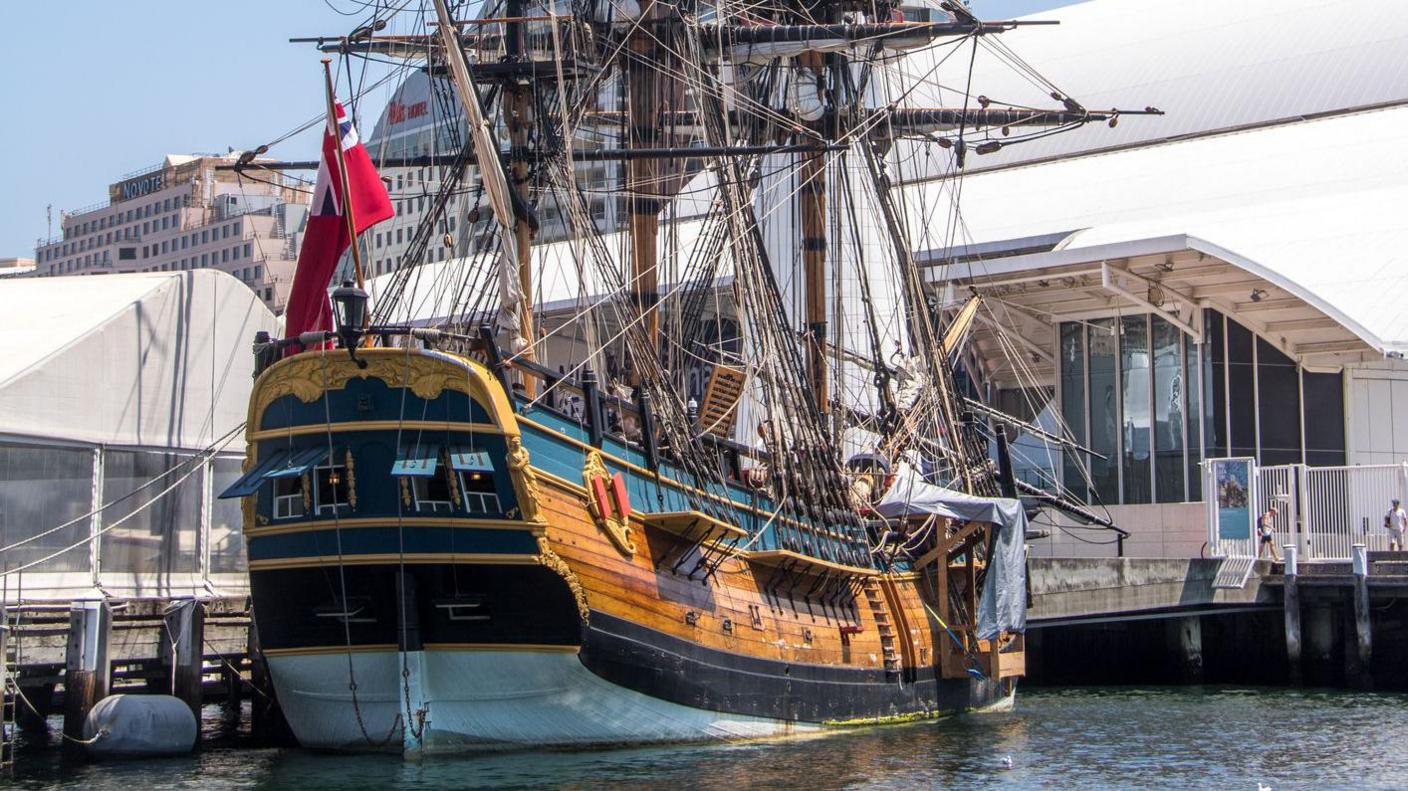Joseph Banks: the man who collected the world
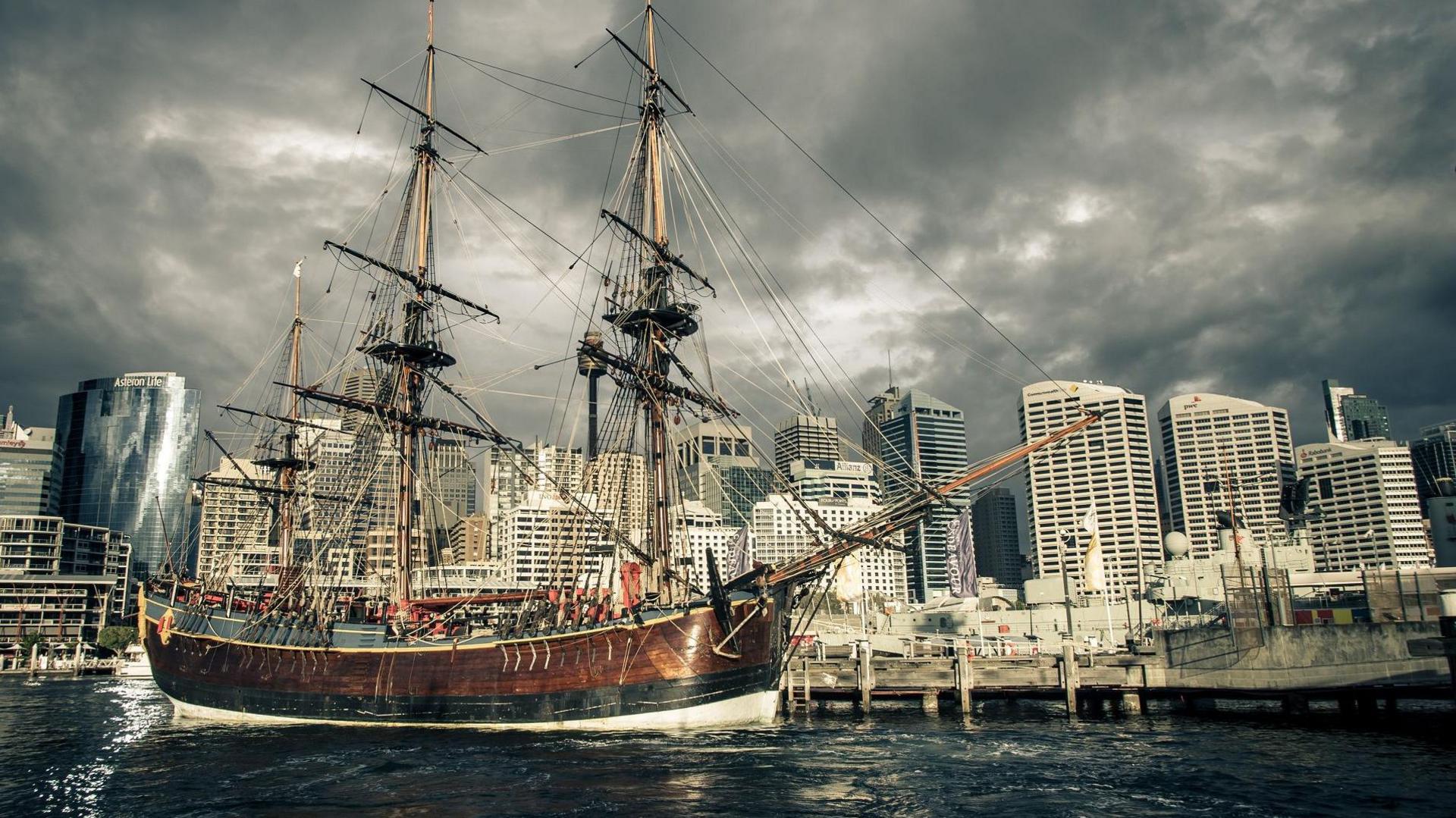
A replica of HMB Endeavour in Sydney, Australia
- Published
He made his name on a voyage around the world alongside Captain James Cook, before becoming a friend of King George III and one of the most influential men in Britain. But the pioneering naturalist and botanist Sir Joseph Banks, who transformed European knowledge of the wider natural world, never forgot his roots in Lincolnshire.
Born in 1743, Banks grew up on his father's estate, Revesby Abbey, near Horncastle, where he became fascinated with nature, as the Secret Lincolnshire podcast has been hearing.
"He would have seen all of the Lincolnshire Fens before they were drained and there would be ponds and lakes and lagoons and birds. It was described as the aviary of England," says Paul Scott, who works at the Sir Joseph Banks Society in Horncastle.
Banks developed his interest in botany while studying at Eton.
"He noticed old ladies picking plants," Paul adds. "They told him that they were collecting [them] for apothecaries and quacks for medicines."
"He was paying the old ladies a few pennies a time to tell him what the plants were and what they were used for."
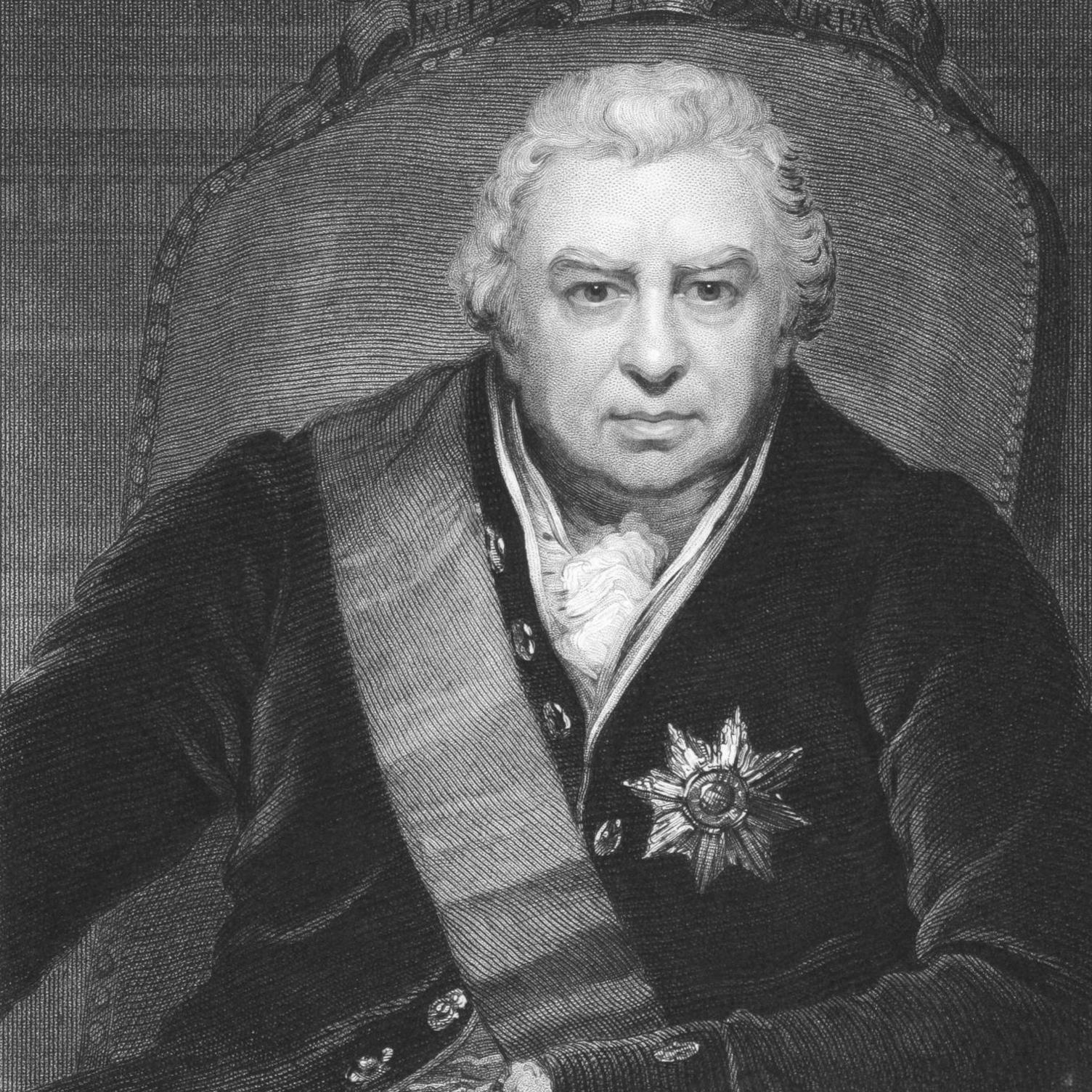
Banks became one of the most influential men of his era
Banks deepened his love for exploration by embarking on a voyage across the Atlantic to Newfoundland and Labrador, in northern Canada, in 1766.
According to Paul, Banks "was interested in everything" he found in these lands – the way that the indigenous peoples lived, the clothes they wore, the food they ate and the tools they used."
Sir David Attenborough, the patron of the society, has spoken of how Banks methodically collected ordinary items, such as a fishhook, made by people who had no knowledge of European technology.
But while Banks was passionate about exploration, the sea was not his friend.
"He was really seasick for most of the time on that voyage which must have been fairly miserable," Paul says.
Listen to Paul telling the story of Sir Joseph Banks
Despite this, in 1768, Banks joined Cook's voyage to the South Pacific on HMB Endeavour.
Paul says it was "the first purposeful scientific mission" launched from the UK.
"Going around the world was pretty common, still very dangerous, but nobody had ever equipped a vessel with scientific equipment and scientists to go and do science."
The aim of the mission was to witness the transit of Venus in Tahiti. It would last three years and Endeavour, a former cargo ship less than 100ft (30 metres) long, was home to 98 people.
When they reached Rio de Janeiro, Brazil, the governor barred them from landing.
"But this didn't stop Banks, says Paul. "He sent his servants at night out in a rowing boat to collect plants up the river... under the governor's nose."
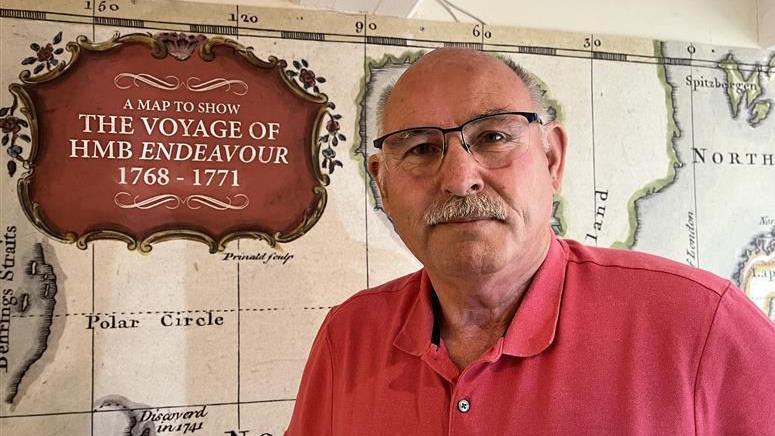
Paul Scott says the Endeavour voyage was not an easy one
From there they went further south, round Cape Horn, at the tip of South America, before reaching Tahiti.
"There were some relationships between some of the crew and some of the Tahitian women," Paul says. "Banks also took part in that. He had a relationship with the princess or the queen of Tahiti.
"Rather famously, one evening he spent with her, he fell asleep and she stole his trousers. So, he had to go back onto Endeavour with no trousers, which must have been hilarious for the crew."
The Endeavour moved on to New Zealand and Australia, where the crew found plants and animals, such as kangaroos, that no Europeans had seen before.
However, it was not an easy journey.
Violence and regret
"Half the crew died in this voyage," says Paul. "This was not a Thomas Cook cruise, it was a James Cook expedition."
Nine Maori people were killed during their first encounter with Cook in what is now the city of Gisborne, New Zealand, an incident that continues to cause controversy and led to a "statement of regret" by the UK government in 2019.
And the traditional celebration of Cook as the "discoverer" of Australia has become increasingly controversial because Aboriginal people lived on the land for tens of thousands of years before he arrived.
In 2023, it was announced that spears belonging to Aboriginal people and taken by Cook's crew when they first arrived in Botany Bay, Australia, would be given back. They were taken after a violent encounter with members of the Gweagal clan.
Meanwhile, the role of indigenous peoples, including Polynesian and Maori societies, in helping Banks identify and describe hundreds of species of plants has recently been highlighted in research by the Cambridge academic Dr Edwin Rose, external.
However, back in 1771, when the Endeavour's crew returned to Britain, Paul says "people couldn't believe what they'd found and seen".
"They became very well known in society.
"Everybody in London wanted to invite them for dinner, including the king. They were celebrities."
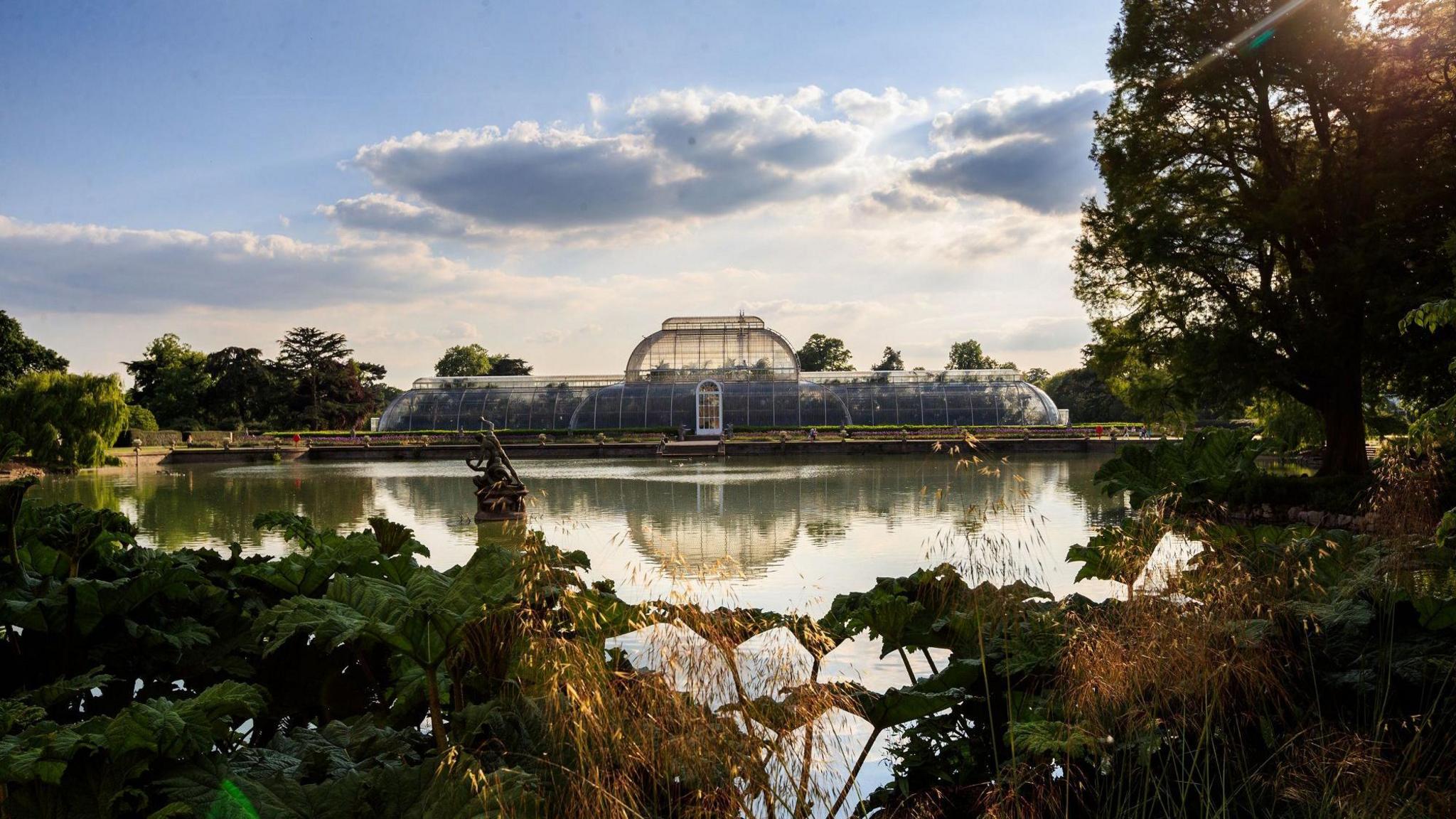
Banks helped develop the Royal Botanic Gardens at Kew
Later, King George III tasked Banks with creating the finest botanic gardens in the world, at Kew. He also served as president of the Royal Society for more than 40 years, until his death in 1820 aged 77.
He was, says Paul, a man of huge wealth and influence.
"This was the beginning of the Industrial Revolution. Everything of any significance went across his desk.
"Our empire was expanding, the map was changing and Britain's importance in the world was expanding, and Banks was at the centre of all of that."
Today, Banks is honoured around the world in place names such as the Banks Islands, in Vanuatu, and the flowering plants known as Banksia.
But in recent years, conversations have opened up about more controversial, colonial legacies.
He was instrumental in recommending the establishment of the penal colony in Botany Bay, stating that there would be there would be "little probability of any opposition from the natives". This would turn out to be incorrect, according to the University of New South Wales, external.
The Aboriginal warrior Pemulwuy led resistance against the Sydney colonists, but was shot dead in 1802. His severed head was sent to Banks for his collection, external. In 2010, during a visit to Australia by Prince William, there were renewed call for the remains to be returned, external, though their whereabouts are at present unknown.
Beyond his imperial legacy, Banks also had a big impact in his home county of Lincolnshire.
"We just need to look at our canal system – the Horncastle to Tattershall canal, the Sleaford canal, the Grantham canal," Paul explains.
The Horncastle canal opened in 1802 and over the next 20 years, the town "became prosperous and connected to the rest of the country".
Banks was also behind the drainage of the Fens.
"All that land now is perhaps some of the finest growing land in the country and it was Banks that was instrumental in having those fens drained."
Listen to more episodes of Secret Lincolnshire on BBC Sounds.
Listen to highlights from Lincolnshire on BBC Sounds, watch the latest episode of Look North or tell us about a story you think we should be covering here, external.
Download the BBC News app from the App Store, external for iPhone and iPad or Google Play, external for Android devices
Related topics
- Published16 December 2016
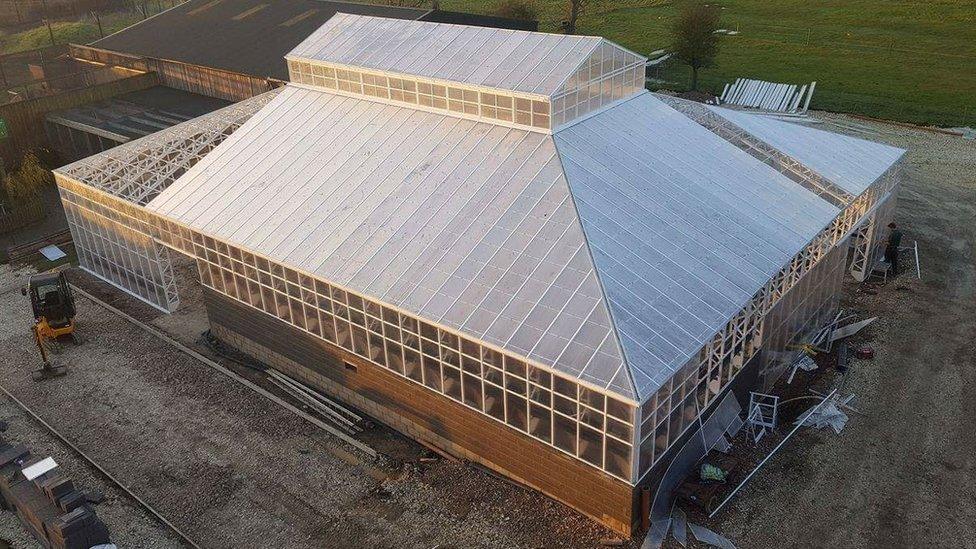
- Published23 April 2024
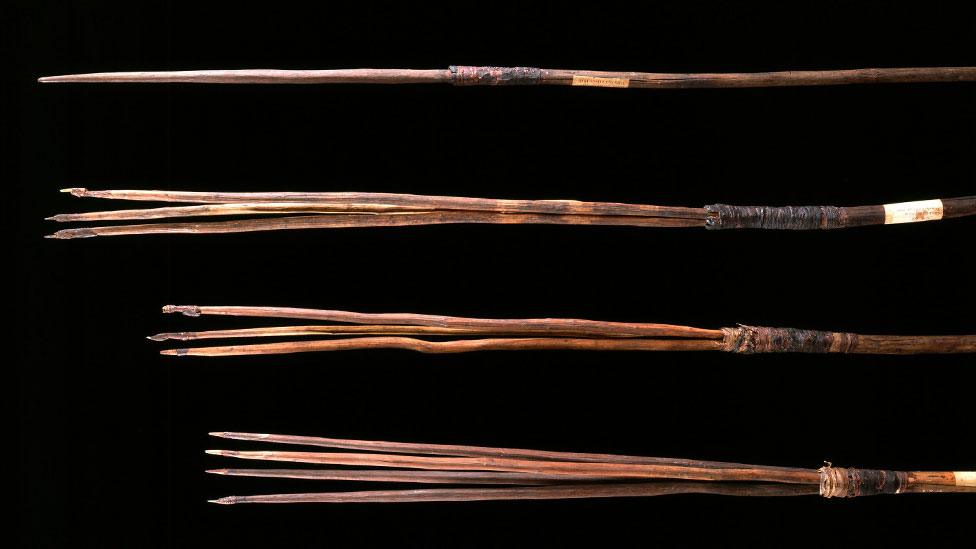
- Published20 June
